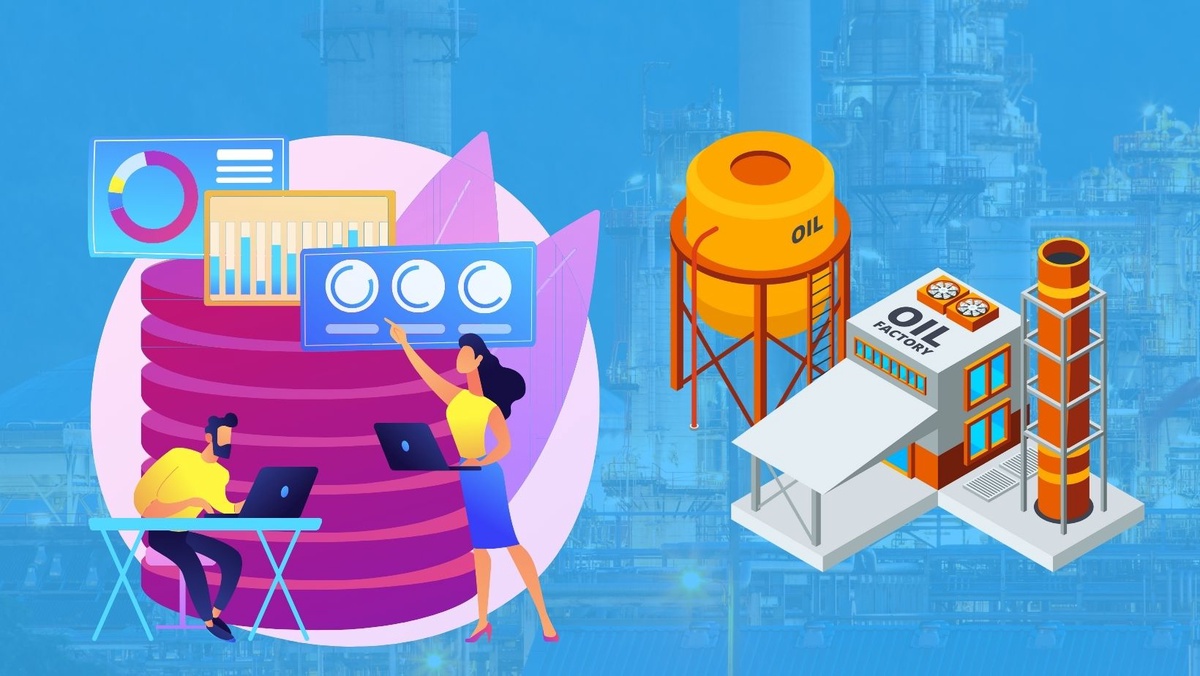COVID-19 has undeniably been one of the most significant impacts on the global economy. It also affected the Oil & Gas Industry, with oil prices falling, uncertainty in supply chain management, and other issues. Oil and gas businesses will need more than just industrial equipment or replicating processes on platforms to scale up in the future.
There is no doubt that the Oil & Gas sector faces a plethora of challenges unmatched in the past. With the advent of cutting-edge digital technologies and the adoption of innovation, oil and gas companies are evolving their operational models and decision-making strategies in response to these challenges.
With the introduction of 5G shortly, many of these changes will gain further momentum. Many trends drive industry innovation. This article discusses the top trends affecting the oil and gas industry.
Trends in the oil and gas industry
Oil and gas have been most affected by artificial intelligence and the Internet of Things. Blockchain solutions in O&G value chains will provide visibility and transparency, while augmented and virtual reality technology will enhance worker safety and allow remote operations.
Discover how global trends are transforming the oil and gas industry.
AI and VR
Using AI-driven data insights, large, siloed data sets can be combined to produce actionable insights that improve site efficiency and worker productivity. Data loss and outdated data sets plagued many companies back in the day.
As part of cognitive, prescriptive, and predictive analytics, AI-enabled platforms assist petroleum managers and engineers in developing ideas that increase ROI in exploration and production, resolve complex exploration and production problems, and optimize upstream resources.
Analyzing big data and advanced analytics
Data generated by O&G during daily operations is unstructured. Big Data platforms and advanced analytics can optimize oil and gas operations, reduce production costs, and increase ROI.
Aside from managing assets and interpreting seismic data, advanced analytics has many other uses in the oil and gas industry.
Cloud computing
Data can be stored and processed by remote servers connected via the internet thanks to cloud computing, which increases storage capacity in the oil and gas industry. Through its daily activities, it generates a vast amount of digital information.
Cloud computing allows you to access real-time insights, create dashboards, and conduct advanced analytics on your local computer, which has some free memory and processing power. The result is the insight that can assist you in making the most informed decision possible in the shortest possible time.
Cybersecurity
Cybersecurity solutions are crucial for improving the safety of oil and gas operations at all levels because cyberattacks can result in losing confidential information operational technology.
O&G companies could improve their OT cyber readiness through a three-level approach that assesses, protects, and responds to cyber threats.
Automation
Automating oil and gas solutions reduces errors and speeds up operations, creating safer working environments. The automated processing of drilling processes, such as pressure drilling and pipe handling, for example, leads to reduced costs and improved safety when it comes to drilling.
Drones are used in mining fields located in remote areas to reduce the cost of inspections and drilling operations since most mines are located in remote locations. This eliminates the need to hire pilots and reduces costs.
Machine Learning and Data Analytics
Using big data analytics, it is possible to shift a company's business model from "production at all costs" to something more accurate, such as predicting profits and losses. Furthermore, such capabilities will enable oil and gas companies to plan their drilling operations better to minimize the effects of market fluctuations and consumer behavior.
There will be a shift in oil and gas companies to rely on data analysis to predict the future for them so that they can restructure themselves to meet the growing demand for clean energy while maintaining profitability at the same time.
Workplace digital transformation
In a digitally transformed workplace, collaboration tools are introduced, talent is reskilled, and a digital-first culture is adopted. Businesses must develop a digital transformation strategy that is inclusive and agile.
More than adopting digital tools and IT Oil & Gas industry solutions are required for businesses to solve existing problems; they must look at those functions that require the use of technology to deliver better service and then invest in the right mix of talent, tools, and structures to meet those needs.
Data Management as a Service (DMaaS)
Energy company data management is complex, making processing and transforming terabytes into actionable insights expensive and time-consuming.
Domain Management as a Service (DMaaS) allows O&G organizations to manage, protect, and structure their enterprise data to make it easy to understand and navigate.
Internet of Things (IoT)
With the Internet of Things (IoT), oil and gas companies can gain a 360-degree view of their equipment and processes, increase production, reduce maintenance costs, and improve efficiency. In addition to monitoring remote areas and ensuring worker safety, IoT can also be used to ensure smooth operations and operations without interruption.
Using IoT-based modeling, operators can optimize the management of their wells and reservoirs based on data.
Conclusion
As the oil and gas industry relies increasingly on technology to remain profitable, it also relies heavily on skilled labor and human effort. Furthermore, consumers are becoming more concerned about eco-friendly practices and technologies, which is making it harder for companies that do not adhere to the most recent technology and innovations like Oil and Gas Applications to grow.


No comments yet